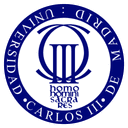This course is part of Introducción a la programación en Java.
This introductory Java programming course offers a comprehensive foundation for beginners. Over five weeks, students progressively learn essential programming concepts including functional abstraction, object-oriented programming (OOP), and application programming interfaces (APIs). The course emphasizes immediate feedback and enjoyable learning experiences, providing examples and case studies that enable students to program independently or collaboratively. Java, being one of the most widely used programming languages today, opens doors to computational thinking—applying computer techniques to everyday processes. The course is structured in three parts: Part 1 introduces programming through familiar concepts like calculators and games; Part 2 focuses on writing "good" programs from perspectives of correctness, efficiency, software engineering techniques, and ethics; and Part 3 addresses fundamental data structures like sequences and search and sorting algorithms. This knowledge is valuable not only for programming current devices like computers and smartphones but also for developing computational thinking skills applicable to everyday processes.
Instructors:
Spanish
Español
What you'll learn
Learn basic Java programming concepts
Develop programs with conditionals and loops
Design and implement recursive algorithms
Understand object-oriented programming fundamentals
Use and interpret common Java API classes
Create simple Java programs
Skills you'll gain
This course includes:
PreRecorded video
Graded assignments, exams
Access on Mobile, Desktop
Limited Access access
Shareable certificate
Closed caption
Get a Completion Certificate
Share your certificate with prospective employers and your professional network on LinkedIn.
Created by
Provided by

Top companies offer this course to their employees
Top companies provide this course to enhance their employees' skills, ensuring they excel in handling complex projects and drive organizational success.





There are 5 modules in this course
This Java programming course provides a strong foundation for beginners, introducing essential programming concepts through practical, interactive learning. Students begin with basic programming fundamentals, learning how to transition from calculator-like operations to building computer programs. The course covers state transformation, functional abstraction, and object encapsulation—core concepts in programming paradigms. Students learn to develop programs using conditionals and loops, design recursive algorithms, and understand object-oriented programming principles. The curriculum includes hands-on experience with Java APIs and common classes, allowing students to create simple yet functional Java programs. By the end of the course, participants will have gained not only technical skills in Java programming but also computational thinking abilities applicable to everyday problem-solving. The progressive structure ensures learners build confidence while developing practical programming capabilities that serve as a foundation for more advanced computing studies.
De la calculadora al ordenador
Module 1
Transformación de estado
Module 2
Abstracción funcional
Module 3
Encapsulación de objetos
Module 4
Empaquetado
Module 5
Fee Structure
Individual course purchase is not available - to enroll in this course with a certificate, you need to purchase the complete Professional Certificate Course. For enrollment and detailed fee structure, visit the following: Introducción a la programación en Java
Payment options
Financial Aid
Instructors

3 Courses
Distinguished Leadership in Digital Education and Learning Innovation
Dr. Carlos Delgado Kloos serves as Full Professor of Telematics Engineering at Universidad Carlos III de Madrid, where he holds multiple leadership positions including Vice President for Strategy and Digital Education and Director of the UNESCO Chair on "Scalable Digital Education for All." His academic credentials include dual PhDs - one in Computer Science from the Technische Universität München and another in Telecommunications Engineering from the Universidad Politécnica de Madrid. His contributions to digital education include pioneering two MOOC trilogies on Introduction to Java Programming on edX that have reached nearly 500,000 registered learners. As coordinator of the eMadrid network and leader of the CertiDigital project, he drives innovation in digital education and micro-credentials. His research focuses on Technology-Enhanced Learning, with significant contributions to MOOCs, SPOCs, and learning analytics. His impact on education is evidenced through his 35-year teaching career, development of numerous digital learning initiatives, and coordination of international research projects such as MOOC-Maker, E-LANE, and SMARTLET. As the Spanish representative at IFIP's TC3 on Education and holder of the UNESCO Chair, he continues to shape the future of digital education through innovative teaching methodologies and technology integration.

2 Courses
Distinguished Leadership in Technology-Enhanced Learning and Computer Science Education
Dr. Carmen Fernández-Panadero serves as Associate Professor of Telematics Engineering at Universidad Carlos III de Madrid, where she specializes in Technology Enhanced Learning (TEL) and meaningful learning experiences. Her academic journey began with an MSc in Physical Science from Universidad Complutense de Madrid in 1996, followed by a PhD in Communications Technologies from Universidad Carlos III de Madrid in 2004. Her professional experience includes work at Andersen Consulting in 1997, where she focused on multimedia and Internet programming projects. Since 1999, she has been teaching at Universidad Carlos III de Madrid, where she has played a key role in Java programming education. Her research impact is evidenced by over 1,000 academic citations, focusing on developing innovative methodologies and artifacts for technology-enhanced learning environments. As a member of the Department of Telematics Engineering, she contributes to advancing the field of educational technology through research and practical applications in computer science education
Testimonials
Testimonials and success stories are a testament to the quality of this program and its impact on your career and learning journey. Be the first to help others make an informed decision by sharing your review of the course.
Frequently asked questions
Below are some of the most commonly asked questions about this course. We aim to provide clear and concise answers to help you better understand the course content, structure, and any other relevant information. If you have any additional questions or if your question is not listed here, please don't hesitate to reach out to our support team for further assistance.



